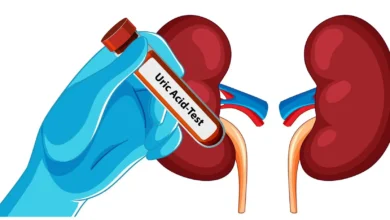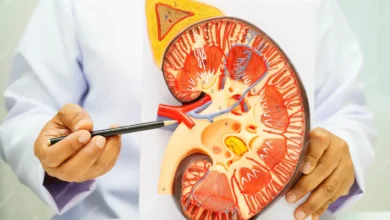Critical Stage 3 Chronic Kidney Disease: A Comprehensive Guide!
A Detailed Overview of What to Anticipate with Stage 3 Chronic Kidney Disease
Welcome to our guide on Stage 3 Chronic Kidney Disease (CKD). Its diagnosis is a significant milestone in one’s kidney health journey that requires heightened attention, strategic interventions, and a strong care backbone. For those of you or your family members who recently received the diagnosis, it is standard to be concerned and have questions regarding what the future holds. This blog post aims to guide you through the different aspects of Stage 3 CKD – from symptoms, possible complications, proactive and supportive lifestyle changes, and treatment options that may maximize the quality of life. We aim to provide rational and emotional coping strategies to assist you through this journey better. So, let us get started!
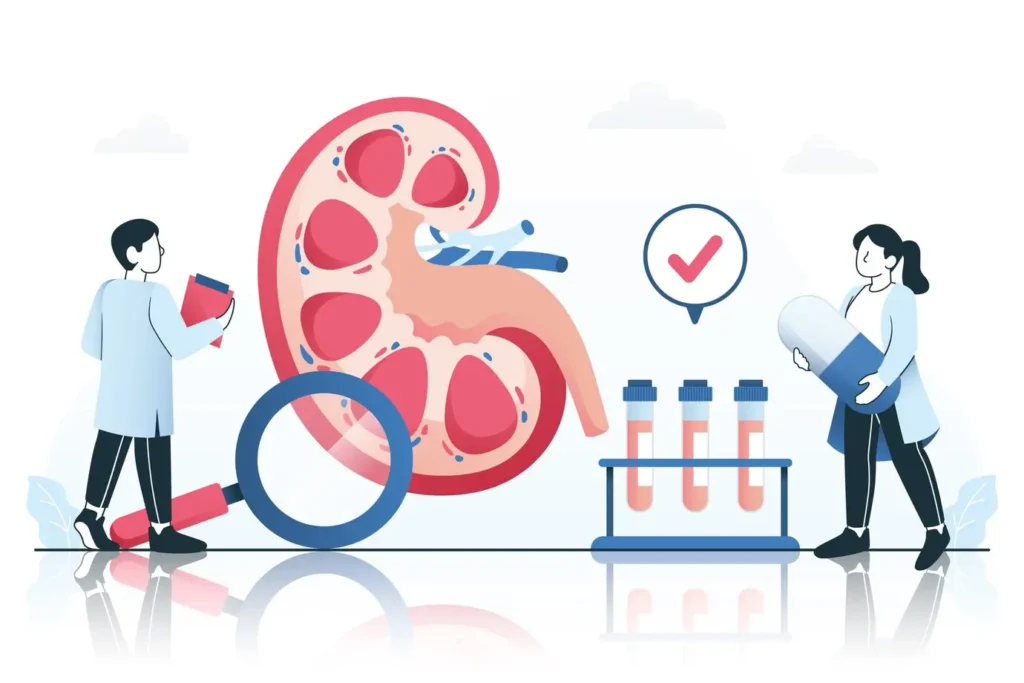
Stage 3 CKD Information Introduction
The very term chronic kidney disease (CKD) carries a heavy burden, and getting to Stage 3 can be particularly challenging. This is more intensive than other stages because symptoms are likely to be more pronounced, and there might be a need for significant changes in lifestyle.
But what does that truly mean for you and your family? The Third Stage of Chronic Kidney Disease (CKD) requires understanding, not just for condition management, but also for life fulfillment contrary to its challenges.
This guide offers comprehensive information on Stage 3 CKD, from diagnosis and treatment to lifestyle changes that improve quality of life. Whether you’re newly diagnosed or supporting someone who is, this resource provides essential insights for managing life with Stage 3 Chronic Kidney Disease.
Having Knowledge on CKD Stages
Chronic Kidney Disease (CKD) is a progressive illness that has five stages based on the decline in kidney function. Familiarity with these stages ensures optimized care and management.
- Stage 1, to CKD means there are increased risk factors and normal functioning. This stage comes without symptoms. However, increased risk factors such as high blood pressure or diabetes can pose more significant problems.
- In stage 2, losses are still mild. However, some signs and the need for regular monitoring starts to emerge.
- Stage 3, is the stage where chronic changes occur. There is a further decline in The kidneys’ functions, which causes symptoms and complications that need treatments more active than before.
- Stages 4, and 5 mark latent dysfunction. Patients encounter severe health difficulties; stage 5 is commonly known as having End-Stage Renal Disease, where one needs to start thinking about dialysis or transplant.
Understanding the distinctive features of each stage makes it easier for people to manage their progression through CKD and target the necessary steps for intervention at all levels.
Symptoms and Signs of Stage 3 CKD
Most chronic kidney disease (CKD) Stage 3 is associated with debilitating physical symptoms that disrupt everyday activities. It is not uncommon for someone to experience fatigue and general weakness, which is most probably due to not being able to eliminate the body’s wastes efficiently.
Fluid swelling around the hands, feet, or face is a common sign as well. This is linked to fluid overload arising from declining kidney function. Changed urinary output is equally concerning either too much or too little.
Many chronic kidney patients also complain about unresolved itchiness combined with dehydrated skin. This could result from abnormal levels of some minerals and nutrients in the body.
Difficulty falling asleep or staying asleep becomes more common as discomfort increases. Discomfort during sleep is seen, too.
Finally, managing physical health alongside emotional wellbeing is crucial, as anxiety and depression can develop during this stage.
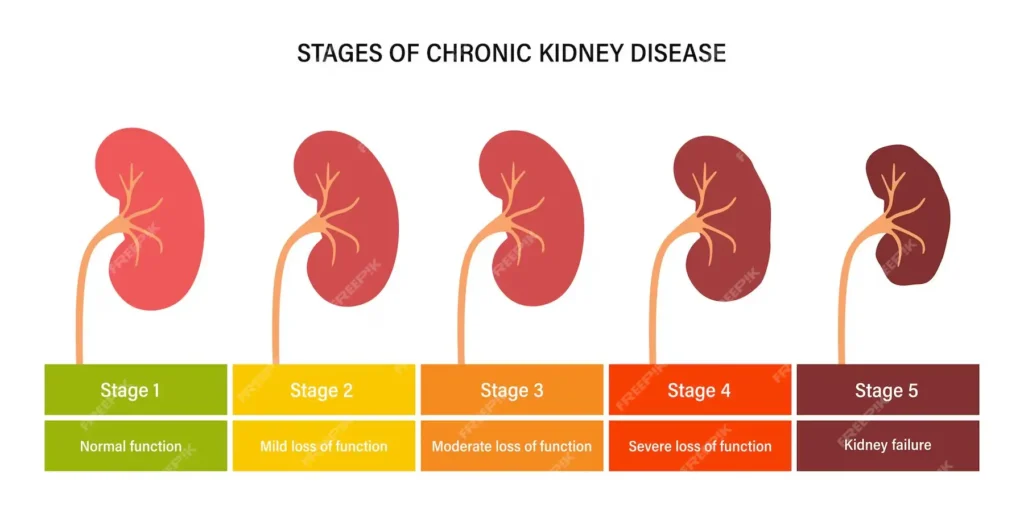
Causes and Risk Factors of Stage 3 CKD
Underlying issues can worsen Stage 3 Chronic Kidney Disease (CKD). Complications from diabetes serve as an example since it gradually increases kidney pH levels, which can damage the internal anatomy of the kidneys.
Hypertension damages the nephrons and the kidney’s filtering units, leading to impaired kidney function over time.
Other medical conditions like glomerulonephritis and polycystic kidney disease can directly result in CKD. These disorders impact the efficiency of your kidneys, in particular, their ability to filter waste out of the blood.
Age can be considered a risk factor as older populations tend to be more vulnerable. A family history can predispose someone to have more chances of developing kidney disease, which further aggravates the risk.
Such factors may include lifestyle traits like smoking and obesity, which not only worsen existing conditions but also progress stage Chronic Kidney Disease (CKD), increasing the need for checkups.
Diagnosis and Treatment Options for Stage Three Chronic Kidney Disease (CKD)
Chronic Kidney Disease Stage Three is diagnosed through various methods. Typically, blood tests are conducted to assess creatinine levels and kidney function. Urinalysis may reveal protein or blood, suggesting kidney problems.
As of the diagnosis, healthcare practitioners can create personalized treatment strategies based on the requirements and objectives of the patient. Management of symptoms and controlling complications such as hypertension are essential for patient wellness. Pharmacological intervention is very effective in managing these aspects.
Patients need to adopt different lifestyles as well. For instance, following a heart-friendly diet and exercise plan can be of massive value. Equally important is the reduced intake of sodium along with appropriate hydration.
As the condition changes over time, some patients may need to undergo dialysis. In the future, other patients might require transplantation if their condition worsens significantly. This often becomes necessary.
The patient’s condition is different, meaning that tailored and individualized interventions are necessary, especially in the case of chronic kidney disease, stage three.
- Medications
The use of medicine is critical to the effective management of Stage Three Chronic Kidney Disease (CKD). To mitigate symptoms and reduce the pace of the disease’s progression, doctors often recommend the use of several medicines.
To keep track of high blood pressure, medications are usually prescribed, and, at times, their use is necessary to shield kidneys and avoid additional damage due to high blood pressure, whose arousal can severely worsen the function of the kidney. To combat this issue, ACE inhibitors and ARBs are the most commonly suggested.
Phosphate binders might also be part of your treatment plan. These binders help manage phosphorus levels in the body, avoiding issues such as bone disease.
Furthermore, if anemia occurs, the use of erythropoiesis-stimulating agents may be needed. These agents stimulate the production of red blood cells and increase energy.
Never start or modify any medication treatment schedule without first consulting the responsible physician. Care requires assessment as the patient’s condition and health status interact with time.
- Behavioral Adjustments
Level 3 Chronic Kidney Disease requires significant Lifestyle Changes, which are vital in maintaining it so it doesn’t worsen. Making minor improvements can improve one’s health.
The diet should come first. A kidney-friendly diet needs to have fresh fruits and vegetables, while processed foods should be avoided. Lowering sodium intake will help lower blood pressure.
Staying hydrated is paramount but can be counterproductive without moderation. Discuss with your healthcare provider for a break-even point.
Regular physical exercise like swimming can improve mood and increase energy. Aim for mild workouts five days a week.
Avoid smoking and excessive alcohol, as it may worsen the state of your kidneys.
Equally essential is managing your stress. Activities like yoga, meditation, or anything that relaxes you are crucial. Initiatives like this also contribute to mental wellbeing, which is very helpful during difficult times.
Every effort makes a difference in improving general wellbeing and aids your kidneys in operating optimally.
- Dialysis
Dialysis is one of the main treatments suitable for patients suffering from stage 3 chronic kidney disease when the kidney function is critically low. This method of treatment helps to cleanse blood from unnecessary waste, fluids, and toxins. It, in turn, replicates some functions of the healthy kidneys.
Another way to perform dialysis is using two methods: hemodialysis and peritoneal dialysis. In hemodialysis, external machines are used for blood cleansing, while peritoneal dialysis utilizes the abdominal cavity for blood cleansing.
Choosing one technique over the other is influenced by the patient’s patient status as well as lifestyle. Regardless of being time-consuming, dialysis performs essential functions to help control the symptoms of CKD.
Combining the knowledge of patients with constant communication with health professionals helps choose the most appropriate treatment individually tailored for each patient. Learning about these procedures can offer patients a measure of control while managing chronic kidney disease.
- Surgery
Kidney surgery in cases with stage 3 chronic kidney disease can extend life expectancy. This option matters most when kidneys are failing, and other forms of treatment are no longer effective.
The process starts with an eligibility check. Criteria include the patient’s general health, age, and any other diseases they may have.
Once approved, patients may undergo a waiting period until they have a suitable appeal for a donor; donors can be living or dead as long as an organ that can be used without significant rejection is found.
Care after the transplant is done consists of constant observation and medication to change the function of the kidney and avoid rejection on the monitor. After a kidney transplant, patients can return to activities they had to stop due to worsened health because of the disease, which improves their quality of life.
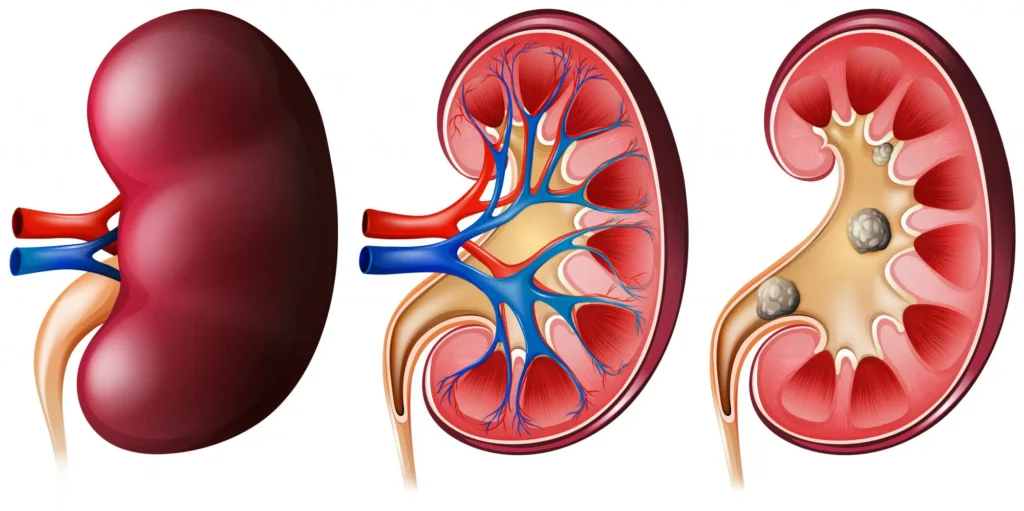
Dealing With the Symptoms and Complications of Stage 3 CKD
Dealing with stage 3 chronic kidney disease symptoms and its complications must be managed effectively to sustain comfort and wellbeing. Fatigue and swelling are common, along with changes to urinary output. Recognizing CKD symptoms allows for timely patient response. Managing these symptoms effectively through diet, particularly by reducing salt, phosphorus, and potassium intake, can ease kidney function. A nutritionist can help create palatable meal plans tailored to support kidney health.
Physical activity should be promoted, provided it is tailored to the needs of the individual. Walking or yoga can improve energy levels without placing excessive demands on the body.
Support in the form of counseling or support groups is equally helpful at this time, as chronic illness can induce feelings of anxiety or depression, and meeting with those who understand what one is going through can be comforting.
- Diet and Nutrition Suggestions
Technology and socio-economic development have had significant impacts on chronic stage 3 kidney disease and can be the primary source of advancement in an individual’s health. A person can sleep better, feel active throughout the day, and lessen the burden on the health care system through positive wellbeing, verified by a doctor. A balanced diet aids in optimizing kidney function and sustaining kidney health.
Special attention must be given to sodium intake so that fluid retention and high blood pressure do not occur. Fresh fruits and vegetables are advisable. However, potassium concerns need to be addressed, as some people may require restriction of bananas and potatoes.
Protein requirements vary by individual activity levels. Muscle mass requires protein for sustenance; thus, a certain amount of protein is necessary. Seek advice from a dietitian for appropriate nutrition guidance specific to individual needs and personal goals.
Staying hydrated is essential. However, fluid allowances may be restricted based on personal circumstances. Your body gives cues relating to thirst and hydration that should always be followed.
Be sure to eat foods rich in phosphorus, which can become problematic when the kidneys are weak. Whole grains are preferable to processed grains because they have less phosphorus.
This condition can be managed more effectively with strategic nutrition changes, and even small changes can yield significant impacts.
- Exercise and Physical Activity
Exercise is an essential component of care for individuals living with Stage 3 Chronic Kidney Disease. Physical activity is beneficial for muscle strength, general health, and mental health as well.
Try to pick low-impact physical activities. Walking, swimming, and cycling are some of the low-impact exercises that should be done. Try to aim for 30 minutes on most days of the week.
Pay attention to your body. Those with CKD may experience quicker fatigue, so it is possible to scale back the intensity and length of the sessions. Stretching and gentle yoga are also great for flexibility and relaxation.
Daily activities also include movement, such as walking up the stairs instead of using the elevator. All of these factors collectively contribute toward an active lifestyle that supports kidney health and can combat the challenges posed by CKD.
- Emotional Assistance
Dealing with Stage 3 CKD can be an under-appreciated burden in life that mars one’s mental and emotional state. It is this feeling that one must appreciate during this time. Most patients worry about their health, and rightfully so.
Feeling understood by other peers on the same path can be exceedingly soothing. Support groups, both in-person and online, offer a platform where individuals can express their feelings and share experiences without the fear of being judged.
Allow yourself to be helped by your family and friends during these difficult moments. They need to know what’s going on in your head during this time so that they can help in their way. Healthy conversations go a long way.
If you feel down or hopeless, reaching out to a specialist can be a great option. From there, you can expect to find guidance tailored to your unique coping device difficulties. These experts can help in more extensible ways than what appears on the surface.
High blood pressure is a symptom that can be eased with medication. Small medications can go a long way when it comes to the patient’s emotional state while living with CKD.
Living with Stage 3 CKD: Tips for Coping and Improving Quality of Life
Learning to live with Stage 3 CKD can be a learning curve, so it is helpful to look for techniques that can improve one’s quality of life.
Even with all these efforts, a person with stage 3 chronic kidney disease can feel daunted by the task at hand. Creating a strong support network is one way to make the situation less troubling.
Prioritize self-care with a structured plan and simple activities like walking, journaling, and meditation to significantly improve mental wellbeing.
Equally important, understanding CKD enables one to make proper decisions with regard to one’s treatments and suitable lifestyle adaptations tailored to one’s requirements. Being informed makes one take leave proactive steps towards managing the condition.
Maintain consistent communication with your healthcare providers and attend follow-up appointments regularly. Routine checkups help detect early kidney health changes.
Lastly, asking for assistance when required is encouraged. Embracing loved ones during this time as you collectively navigate this journey can be beneficial. Using these strategies can equip you with the resilience needed for the challenges that lie ahead.
Preventing Progression to Stage 4 CKD
Staying proactive and emphasizing preventing stage 4 CKD is actionable for preserving kidney health. Alongside your proactive healthcare provider, regular checkups can be beneficial for monitoring kidney health and capturing any shifts early on.
Emphasizing a more balanced nutrition plan towards intake has significant effects on how the kidneys function. Prioritize foods rich in nutrients and low in salt. Additionally, proper hydration is equally as important; aim to drink a sufficient amount of fluids daily, but make sure to contact the doctor to confirm what the correct amount is for you.
Effective management of blood sugar and pressure levels is integral in disease progression – The simple act of taking medications regularly and lifestyle changes can make a difference.
Staying physically active is key to overall health. Activities like walking and yoga, even when done casually, are helpful.
Nurturing friendships, family, and support groups positively impacts emotional health. Caring for one’s mental wellbeing helps manage chronic conditions.
One’s Final Thoughts and The Conclusion
Even though stage 3 chronic kidney disease is challenging to live with, it can be dealt with understanding. This is a significant step since one’s knowledge and action will be needed from this point. If a patient is provided the needed care, they will be able to sail through this phase and even appreciate life.
In regard to supporting chronic conditions, prioritizing attending to your health by changing your diet and exercising is crucial. Family, friends, and even support groups often enhance coping mechanisms.
One must be proactive concerning symptoms and potential complications. Regular appointments with professionals guarantee that one’s treatment plan is aligned with their needs.
Managing your health journey is empowering — physically, mentally, and emotionally. Each day is a chance to strive forward, so take every opportunity.
Actively discussing Stage 3 CKD with specialists will provide you with helpful aids for effectively managing the stage. Remember that you are not alone in this journey; there are aids available to help you cite this.
While coping with chronic kidney disease, please focus on the present and your overall wellbeing health while also considering the available tomorrow and its challenges.
